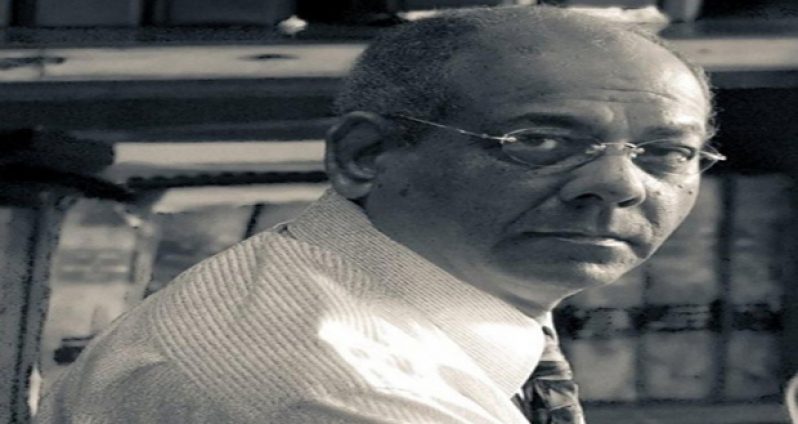FORMER House Speaker and political commentator Ralph Ramkarran says the government should press its case for a government of national unity by launching a full-blown public campaign targeting and mobilising support from both supporters of the coalition as well as from the People’s Progressive Party. Ramkarran’s calls come on the heels of Prime Minister Moses Nagamootoo announcing that he will be leading a team of government officials in talks with the opposition. The coalition had promised to forge a national unity government once elected into office and last week President David Granger reiterated his administration’s commitment to this. “We have at all times aimed at having inclusionary democracy and inclusionary government, so that the 49 per cent don’t feel locked out,” he said, pointing out that Prime Minister Nagamootoo was on spot when he told Berbicians two Saturdays ago that the administration is open to a national unity government with the PPP. Granger said that national unity is part of the philosophy of the coalition, pointing out that there should be some form of sharing, some form of national unity and some form of inclusionary governance. However, amid the President’s optimism, the PPP has said that they would not engage in talks with Nagamootoo and seems to be dithering on the whole idea of national unity.
But Ramkarran, a senior counsel who was forced to resign from the PPP due to internal party strife said that while the PPP is united in its bitterness against Moses Nagamootoo and Khemraj Ramjattan, it may not have a united position in relation to the talks. “In fact, the invitation to talks has not been rejected. The PPP’s refusal to sit down with Nagamootoo should not be an obstacle. There are creative ways around these matters,” Ramkarran wrote in his weekly blog Conversation Tree. He said talks leading to a national unity government should be seen as a process, not an event. “If the coalition wants to maintain focus on the larger picture, it will work through the sensitivities of the PPP. It will be prepared for the long haul and endure the painful negotiations but with purposeful commitment, serious compromises, the use of skilled interlocutors who are available within its own ranks and above all, persistence and patience.” Ramkarran said with each political party seeing the other as its nemesis, as its sole obstacle in its path to its rightful place at the top of the ladder of ethno-political dominance, a recipe already exists for failure. Statesmanship, vision and patience, if deployed, will succeed.
Important step
Ramkarran said too that The APNU+AFC coalition has taken an important initiative towards transforming Guyana’s culture of ethno-political dominance. He said the decision by the APNU+AFC coalition to invite the PPP to share the government is a major and welcome departure from earlier positions. “While it is true that President Granger had indicated support for a national unity government involving the PPP at the time of President Carter’s visit, most of his public pronouncements had projected the APNU+AFC alliance as the multi-ethnic government of national unity. The reality, of course, is that only an alliance of the two major political parties can be considered as the foundation for national unity.”
He recalled that in 1977 the PPP’s announcement of its National Patriotic Front proposals designed to end ethno-political dominance was a major development in Guyana’s politics. “The PNC had rejected these proposals. It was not until 2002 that Desmond Hoyte announced support for ‘shared governance.’ By this time, however, the PPP had long departed from any intention to create national unity by coalition. It had succumbed to the ‘attractions’ of ethno-political dominance that has bedevilled Guyana since the split of the PPP in 1955.”
By 2011, so entrenched within the PPP was the culture of ethno-political dominance, that it was prepared to lose political office rather than act in its own interests and those of Guyana’s, Ramkarran observed, noting that when asked after the 2011 elections if he intended to invite the opposition into the government, President Ramotar, heading a minority government which was bound to fail said, “that will not happen.” “President Ramotar could still have been president today had he allowed his vision to soar. And he could have served a second term as president heading a second national unity government.”
Ramkarran said it is to the credit of the APNU+AFC coalition that it has now taken such a monumental step of offering discussions. “The internal pressures within the coalition, or specifically within APNU, against ending the culture of ethno-political dominance will loom large in the coming period. Thus it is necessary to launch a public campaign in support of talks for national unity. Such a full-blown public campaign should target and mobilise support from both the supporters of the coalition as well as from the PPP. Supportive public opinion will aid resistance to the coalition’s own opposing elements or those from the PPP.”
Take it to the people! Ramkarran urges full-blown public campaign for unity govt
SHARE THIS ARTICLE :
Facebook
Twitter
WhatsApp












